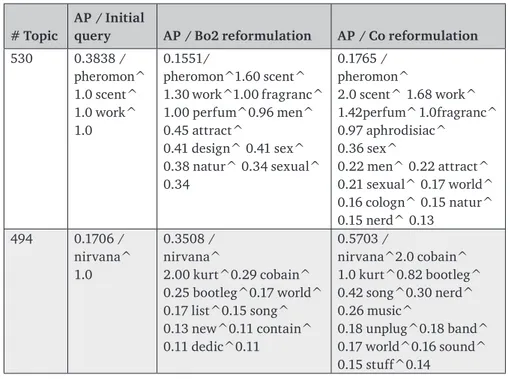Query expansion in information retrieval : What can we learn from a deep analysis of queries ?
Texte intégral
Figure


Documents relatifs
The description of the parse tree in the form of a structure containing information about two or more related words with the indication of their parts of speech and
Key words: information retrieval, query expansion, analysis of query terms, relevance feedback, global analysis,
Many experiments were conducted to find the best configuration for query expan- sion. Table 2 lists two of the best runs with the proposed approach for the same que- ries. Run 4
The results presented in Table 1 show globally that query expansion using only terms’ synonyms from MeSH improves the IR performance in our experiments (Run 6).. Although
Though geographic BRF adding 25 terms from 5 documents combined with the Boolean approach worsened performance for all tasks compared to the respective base
We believe that this is due to the different nature of the searches in the two exercises; more precisely, in the TREC-8 queries the geographical names usually represent
Our main question in this research is to know if using ontology-based query expansion could enhance the performance of the fuzzy proximity model.. From this principal
However, unlike the positional relevance model [12] which is a formal approach for QE ex- tending the relevance Language Model (LM) [10], we believe that the suitability of